Solar systems demand reliable, efficient batteries - but many homeowners wonder if they can repurpose old batteries to save money.
Using old batteries for solar panels is not recommended because: 1) Aged batteries have reduced capacity and efficiency, 2) They may damage solar equipment due to unstable voltage, and 3) Old batteries require more frequent replacement, eliminating any initial cost savings. Always use purpose-built solar batteries designed for daily deep cycling.
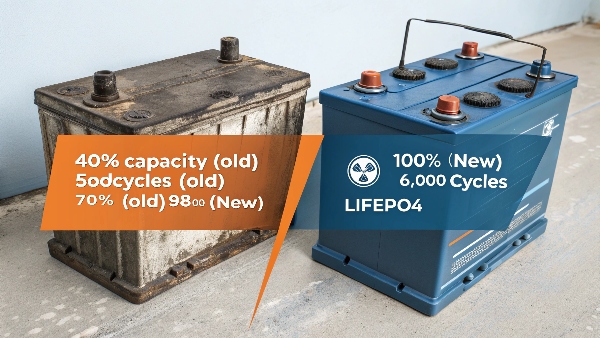
After evaluating hundreds of solar installations using various battery types, we've learned why proper energy storage matters. Here's what you need to know.
Can Old Batteries Be Used for Solar Power Storage?
Repurposing used batteries might seem cost-effective initially, but creates multiple long-term problems.
Old automobile or UPS batteries shouldn't power solar systems because: 1) Their lead-acid chemistry degrades quickly with solar's daily deep cycling, 2) Existing wear reduces capacity below usable levels, and 3) Internal resistance increases, causing energy losses up to 30% compared to new batteries specifically designed for solar storage.
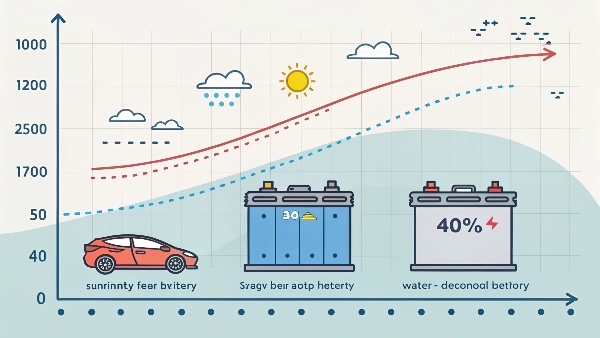
Issues With Old Batteries:
-
Capacity Problems
- 40-60% original capacity remains
- Frequent deep discharges accelerate wear
- Inaccurate charge level readings
-
Efficiency Losses
- Higher internal resistance
- More energy lost as heat
- Slower charging speeds
-
System Risks
- Voltage fluctuations
- Overcharging susceptibility
- Potential BMS incompatibility
-
Cost Considerations
- 2-3x faster replacement cycle
- Higher maintenance requirements
- Voided equipment warranties
How Battery Storage Is Revolutionizing Solar Power?
Modern solar batteries transform solar systems from supplemental to primary power sources.
Advanced battery storage revolutionizes solar by enabling: 1) 24/7 renewable power availability (80-90% self-sufficiency), 2) Smart energy management through AI-driven optimization, and 3) Grid independence with seamless backup during outages. Lithium batteries now last 2-4x longer than older technologies while requiring zero maintenance.
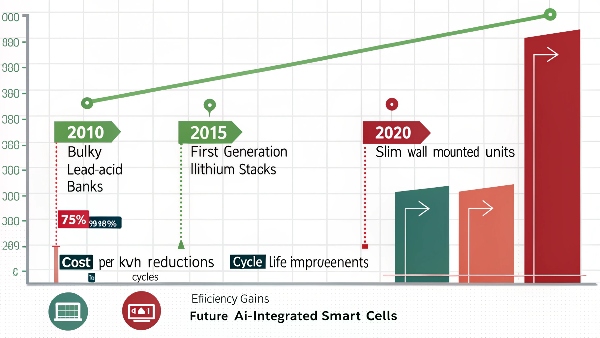
Storage Innovation Timeline:
| Year | Development | Impact |
|---|---|---|
| 2010 | Lead-Acid Dominance | 500 cycles, 50% DoD |
| 2015 | Early Lithium Adoption | 2,000 cycles, 80% DoD |
| 2018 | Smart Hybrid Systems | Integrated solar+storage |
| 2020 | LiFePO4 Breakthroughs | 6,000 cycles, 100% DoD |
| 2023 | AI Energy Management | Predictive load balancing |
Current capabilities:
- 10-second outage response
- 95% round-trip efficiency
- 15-year warrantied lifespan
- 30% cost reduction since 2020
What Are the Best Solar Battery Storage Systems?
Today's top systems combine reliability, scalability, and smart features.
The best solar battery systems feature: 1) LiFePO4 chemistry for safety/longevity, 2) Modular designs (expandable from 5kWh to 30kWh+), 3) Hybrid inverter compatibility, and 4) Smart energy management. Top brands like Huawei, LG, and BYD offer 10-year warranties with 70-80% capacity retention guarantees.
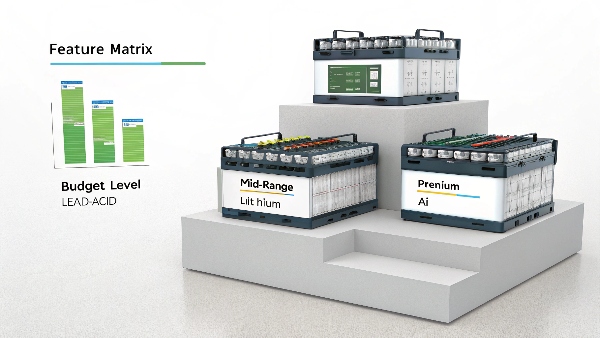
System Comparison Guide:
| Feature | Entry-Level | Mid-Range | Premium |
|---|---|---|---|
| Chemistry | Lead-Acid | NMC Lithium | LiFePO4 |
| Capacity | 5-10kWh | 10-20kWh | 20-30kWh+ |
| Cycles | 1,200 | 3,000 | 6,000+ |
| Warranty | 3 years | 7 years | 10 years |
| Smart Features | Basic | Advanced | AI-Optimized |
| Price/kWh | $300 | $500 | $600 |
Key differentiators:
- Warranty length indicates confidence
- Modularity supports future expansion
- Efficiency impacts solar ROI
- Temperature range for climate adaptability
Can I Add Battery Storage to My Solar System?
Most existing solar installations can integrate battery storage with proper equipment.
You can add batteries to 90% of solar systems using: 1) AC-coupled solutions (simplest retrofit), 2) DC-coupled options (higher efficiency), or 3) Hybrid inverter replacement. System expandability depends on your current inverter's capacity and battery compatibility - consult a solar professional before upgrading.
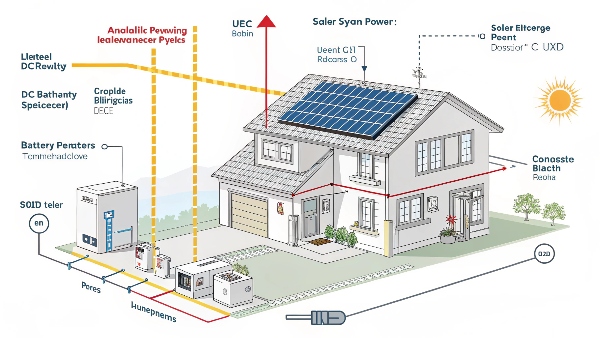
Expansion Options:
For Existing Systems:
-
AC Battery Add-on
- Works with any solar system
- Lower efficiency (85-90%)
- Easy installation
-
- Requires equipment swap
- Better efficiency (95%+)
- More future options
For New Systems:
- Hybrid Solar+Storage2
- Single integrated unit
- Best performance
- Smart energy management
Consideration checklist:
- Inverter capacity limits
- Physical space requirements
- Electrical panel upgrades
- Local permitting needs
- Future expansion plans
Conclusion
While repurposing old batteries may appear financially attractive, modern solar systems require purpose-built storage solutions to ensure safety, efficiency, and reliability. Today's LiFePO4 battery technology offers significant advantages over aged batteries or outdated chemistries, with smart solar storage systems now providing expandable capacity and intelligent energy management. Whether retrofitting an existing array or designing a new installation, proper battery selection and professional installation ensure optimal solar performance and long-term system viability.

